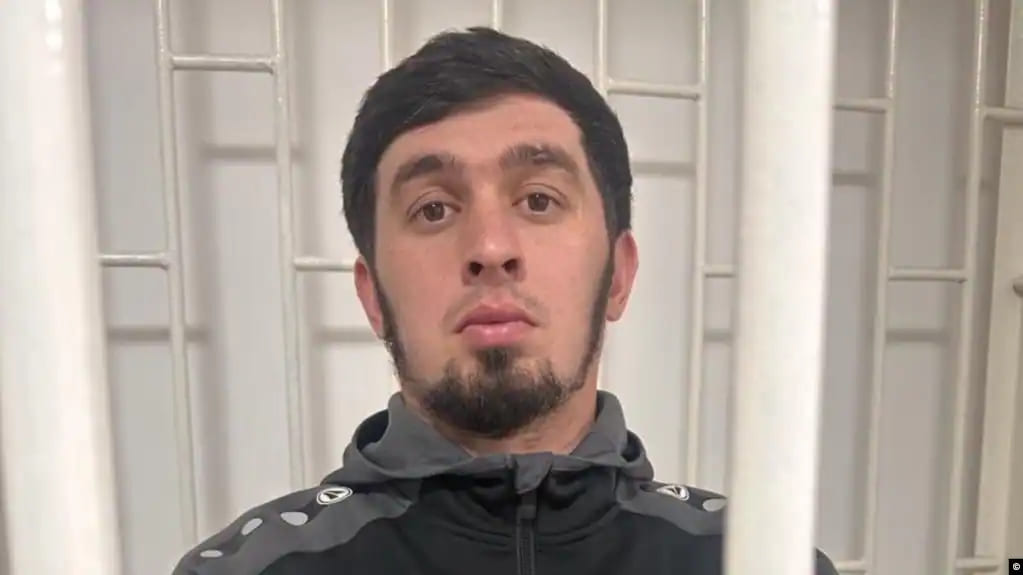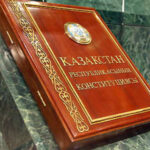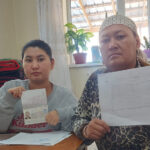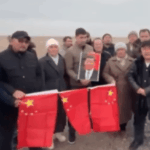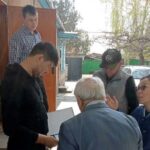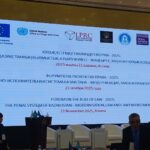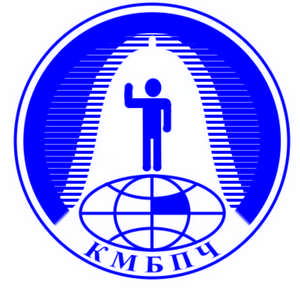Chechen activist Mansur Movlaev, recently arrested in Kazakhstan, is facing the threat of extradition to Russia, which could put his life in danger.
Accused in Russia of drug possession and extremism—charges he denounces as fabricated in the context of political persecution—Mansur Movlaev finds himself caught in a legal and human quagmire, at the crossroads of international law and the dark realities of Chechnya.
Movlaev is a civil activist known for his criticism of the Chechen regime. Threatened and repeatedly arrested in Chechnya, he was convicted on the basis of fabricated charges. After serving a prison sentence, he was forced to flee Russia to escape further persecution. Arrested in Kazakhstan two days ago, his defense team is now awaiting a hearing before an investigating judge to decide on possible detention pending extradition.
According to his lawyer, an official extradition request from the Russian Federation is expected, and his detention could be extended for up to 12 months while awaiting a decision. The defense, for its part, is working to have Movlaev recognized as an asylum seeker, highlighting the serious risk of torture and extrajudicial execution if he were to be returned to Russia.
In 2022, Movlaev escaped from a clandestine prison in Chechnya, a region marked by massive human rights violations. He illegally crossed the border into Kyrgyzstan, where he was sentenced in 2023 to six months in prison and ordered to be deported to Russia. Since then, he has taken refuge in Kazakhstan.
In October 2024, he reported the abduction and torture of his brothers in Chechnya, underscoring the systematic repression of dissidents in the region.
Chechnya, ruled for more than fifteen years by Ramzan Kadyrov, is notorious for its violent repression of political opponents, arbitrary practices, torture, and enforced disappearances. Many activists, journalists, and human rights defenders there are victims of extreme persecution.
The Almaty court has decided to place Mansur Movlaev in provisional detention for a period of 40 days. Contrary to a strictly punitive measure, this decision is seen by his defense as a way to ensure his immediate safety. Indeed, as long as he remains under the official judicial protection of Kazakhstan, Movlaev is shielded from the risk of a hasty extradition or an informal transfer to Russia, where he could be exposed to torture or inhuman treatment.
This period of detention also gives his lawyers the necessary time to file an asylum request and activate international legal mechanisms that could block his extradition. On this matter, his lawyer, Murat Adam, announced that an asylum application would be submitted as soon as possible, emphasizing that his client faces serious dangers if returned to Chechnya — notably the risk of torture or even execution.
From a legal standpoint, it is important to recall that Kazakhstan can only comply with an extradition request if it aligns with the principles of international law. In particular, under the principle of double criminality, the offense for which Movlaev is accused must constitute a criminal offense both in Russia (the requesting state) and in Kazakhstan (the requested state). Furthermore, international conventions stipulate that extradition must be refused if it is based on political motives.
Finally, if Mansur Movlaev applies for political asylum, Kazakhstan is obligated to seriously consider his request before making any decision regarding extradition. This vigilance is all the more necessary given that, as highlighted by Svetlana Gannushkina, president of the “Civic Assistance” Committee, individuals from Chechnya who are extradited to Russia are systematically handed over to an escort from that republic.
This procedure, though informal and based on a verbal agreement between authorities, reinforces the concerns of human rights defenders regarding the safety of the individuals involved.
The case of Mansur Movlaev is yet another example illustrating the profound human stakes linked to the situation in Chechnya. Between law and politics, security and persecution, the outcome of this case will be closely watched by human rights advocates, who fear a disguised death sentence under the appearance of a judicial process
Since the beginning of Russia’s invasion of Ukraine, more than 800,000 Russians have been temporarily relocated to neighbouring Kazakhstan. Those wanted in Russia for political reasons usually spend a year in a detention centre while Russia’s extradition requests are considered. However, if asylum is not sought by the military or special services (they are extradited to Russia), Kazakhstan tries to extradite the asylum seekers abroad.

